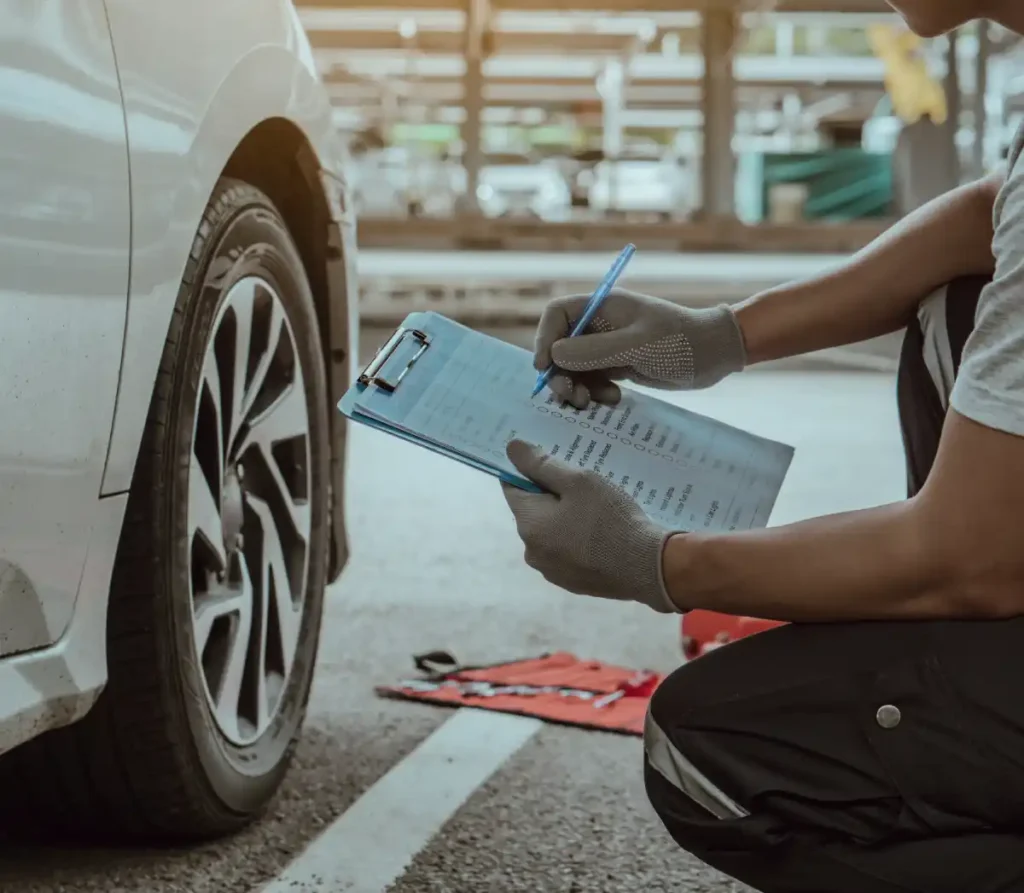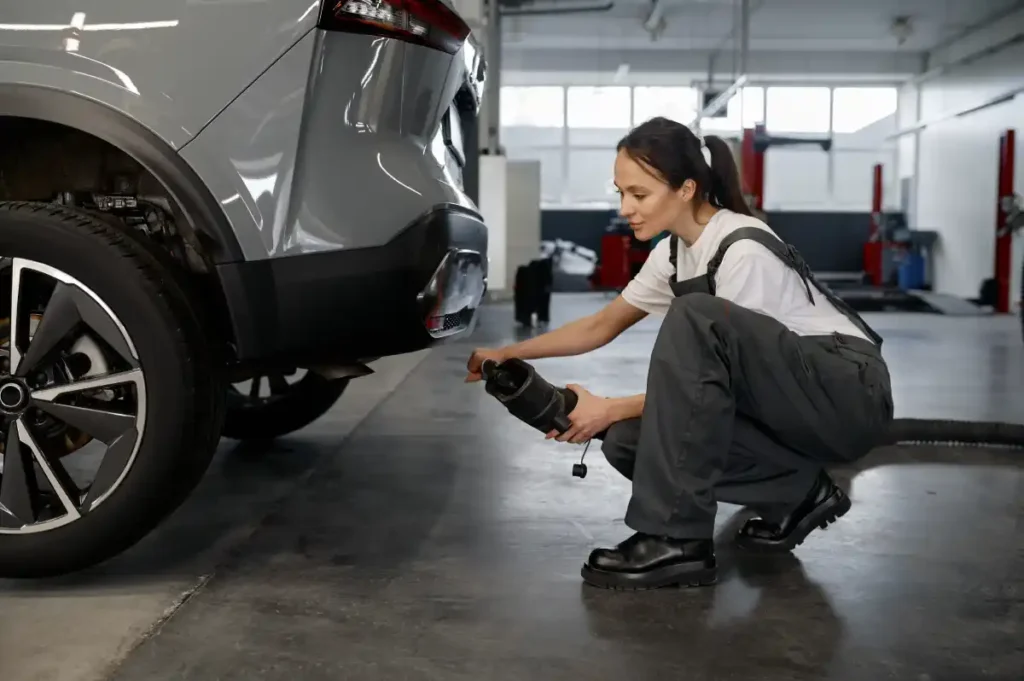
Importing cars from abroad can be tempting, but it's important to check the vehicle's history before you decide. Many cars that come from abroad often have significantly higher mileage than advertised. This way you can avoid disappointment and potential problems in the future.
Fortunately, there are various online tools and databases that allow you to check the technical data, service history and even the country of origin of the vehicle. With the help of the VIN number, valuable information can be obtained to help you make an informed purchasing decision. Checking the vehicle's history is a crucial step that should not be underestimated.
How to Get Vehicle History Information
To obtain information about the history of a vehicle when importing from abroad, there are effective methods that help to reveal all the necessary data. These tools allow buyers to get an accurate picture of the condition of the vehicle.
Online Verification Tools
Online platforms offer a wide range of services for vehicle verification. Using the VIN number or license plate number, it is possible to check the technical data, mileage and service history of the vehicle. For example, the website jiscd.sk allows you to get information on whether the vehicle is registered as a taxi. In addition, a visit to the Slovak Police website will provide data on stolen vehicles, thus reducing the risk of buying a stolen car.
Verification of VIN Number
Verifying the VIN number is crucial when buying an imported vehicle. The VIN number carries a lot of information such as country of manufacture, manufacturer and serial number. Vehicle history verification sites can provide accurate information on all technical inspections and accidents. Also, an originality check ensures that the vehicle has not undergone modifications that could affect its value. A thorough VIN number verification minimises the risk of fraud and provides confirmation of the vehicle's legality.
Mileage check
The mileage check is one of the most important aspects of the vehicle history check. Mileage verification websites provide records of roadworthiness and emissions checks, showing when and in what condition they were carried out. A graphical representation of the development of the odometer status can reveal suspicious jumps or irregularities. Appropriate use of online tools provides specific dates and mileage receipts, which helps prevent fraud. Proper information supports informed decision making when purchasing a used vehicle.

Vehicle History Verification Procedures
Checking the history of a vehicle when importing it from abroad is a key aspect that will help avoid financial losses and problems associated with poor quality or stolen cars. There are a number of procedures that will help in verifying its history.
Verification in Country of Origin
Experts recommend checking the vehicle in the country of origin, which usually involves contacting the local motor vehicle registry or national registration offices. The information obtained includes technical data, previous ownership and damage history. The VIN number is essential in this check as it provides an accurate record. In Germany, for example, vehicle data is available online in most cases, making the verification process easier. Professional administrative services, such as notary offices, can also offer assistance in obtaining this information.
Vehicle information from the country of origin can reveal whether the car has ever been involved in an accident or has any arrears. On the website of the Ministry of the Interior, VIN verification tools are available that aim to prevent trafficking in stolen vehicles.
Important Documents to Check
Checking the vehicle's history also requires you to provide the necessary documents. Among the most important are the purchase contract, the invoice and the vehicle's registration certificate. An official translation of these documents is necessary for the registration of the vehicle in the Slovak Republic. This ensures the transparency and legality of the vehicle.
The history of the vehicle should be verified on the basis of correctly completed documents. An originality check is compulsory and the expert opinion becomes valid for 15 days. It is also important to have all the documents relating to the technical and emission control of the vehicle translated. When the vehicle is over 4 years old, it is necessary to have a technical and emission check, where the technical condition and emissions will be checked. Without these documents, it is not possible to obtain compulsory insurance, which is related to the registration of the vehicle and its entry into service.
The preparation of these documents and their professional processing are key to ensuring a smooth process when importing a vehicle.
Vehicle Originality Check
The vehicle originality check confirms that the vehicle is not stolen and meets the requirements for legal operation on Slovak roads. The check is carried out in authorised workplaces where technicians verify the identification numbers and the conformity with documents such as the technical licence. If the vehicle passes the test, the staff issues a certificate of originality. The cost of this check varies from around 50 to 100 euros depending on the specific workplace.
To verify the authenticity of the vehicle, it is also important to check records of previous history, such as maintenance records and vehicle transfers between different owners. Any discrepancies may indicate fraud or hidden damage, which can influence the buying decision. It can also be useful to use online registries that offer an overview of the vehicle's history to verify originality.

Emission and Technical Tests
Emission and technical tests are compulsory for all vehicles entering service in Slovakia. The technical inspection will check the condition of brakes, lights, tyres and other critical vehicle components. The emission test focuses on air pollution, so it is important that the vehicle has a valid emission test.
To pass these checks, the vehicle must be registered and have a confirmed mileage. The interval between the technical and emission checks is usually two years; however, for vehicles used as taxis, a shorter interval of one year applies. Continuous maintenance and timely completion of these checks have a direct impact on the safety and reliability of the vehicle.
Before carrying out these checks, it is also a good idea to check previous records of technical and emissions inspections through available portals such as the Unified Road Transport Information System. Prices for technical and emission checks vary, but range from €30 to €80, depending on the technical inspection station and the type of vehicle.
Advice and Tips for Buying an Imported Vehicle
Checking the vehicle's history before buying it from abroad can prevent serious problems. Decisions in this process require careful review and consideration of several aspects.
What to Watch Out For
- Documentation: Check all available vehicle documentation, including registration documents and service history. This information may reveal previous accidents or malfunctions.
- VIN number: Check the VIN number in databases such as the Slovak Insurance Office and local registers. The number of previous owners and accident history are key indicators.
- Physical control: Check the condition of the vehicle in person. Look for signs of damage or wear that may indicate hidden problems.
- Test drive: Take a test drive. Observe the behaviour of the vehicle and check the sounds found.
- Price comparison: Compare prices of similar vehicles on the market. A significantly lower price may indicate fraud.
- Ignoring historical recordsAvoid ignoring records. Incorrectly assessed mileage can lead to unnecessary repair costs.
- Sending money in advanceA: Do not send money in advance without meeting in person and inspecting the vehicle. Doing so unnecessarily exposes you to the risk of fraud.
- Unrealistic expectationsA: Do not assume that a vehicle from abroad will always be in perfect condition. Check thoroughly and accept that not all imports are trouble-free.
- Failure to request certificatesA: Don't be lax in asking for certificates of originality and technical documents. You cannot legally register a vehicle in Slovakia without these documents.
This summary provides basic advice and tips to help avoid mistakes when buying an imported car.

Sources and Links for Verification
Verifying a vehicle's history requires the use of reliable sources. Various online platforms and experts provide the information needed to verify a vehicle in a trustworthy manner.
Useful Websites
- Slovak Insurance Bureau: Provides a database of vehicles where you can check if the vehicle is insured and what its previous damage is.
- Police of the Slovak RepublicA: Offers services to verify stolen vehicles and their history. The use of these services is essential for all potential buyers.
- Vehicle history onlineA: Several sites, such as CarVertical or AutoDNA, allow you to check the VIN number and check mileage, technical data, and previous ownership.
- Authorised service centres: Contact an authorised workshop that has access to the official databases and can provide detailed information about the vehicle. It is recommended to check the technical condition and service history before making a decision.
- Vehicle inspectors: Consider an independent expert who specialises in vehicle inspections. Experts can detect hidden damage and provide expert opinion.
- National motor vehicle registers: Contacting the local motor vehicle authorities in the country of origin can clarify the vehicle's legal history and ensure the accuracy of the information. It is important to verify the documents before importing the vehicle.
- Legal adviceA: Lawyers specialising in motor vehicles can provide valuable advice directly regarding the importation and registration of vehicles from abroad. This helps in navigating the legislation.
Conclusion
Checking the history of a vehicle when importing from abroad is an essential step for any potential buyer. Correct information about the roadworthiness and previous history can prevent many problems and disappointments. Using the tools available online and contacting experts ensures that the vehicle will meet all requirements for legal operation.
A thorough check of documentation and technical records is key to ensuring a smooth registration process. With these steps in place, everyone can feel more confident when purchasing an imported vehicle and avoid potential fraud.